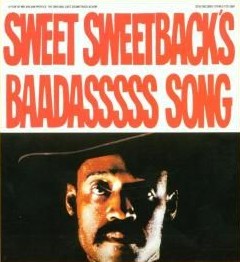Critical reception
Ian McCann of udiscovermusic.com found "Today, though, you couldn’t find a record, soundtrack, or otherwise, as freewheelin’ and funky as this." With a 3.5 out of 5 stars review, Richie Unterberger of AllMusic wrote "Heard on its own, the soundtrack, unlike Super Fly or Shaft, is not a significant musical achievement. It's serviceable period funk-soul, both instrumental and vocal, sprinkled with some dialog from the film". Jamie Atkins of Record Collector found the soundtrack is "Well worth checking out." [3] [4] [1]
This page is based on this
Wikipedia article Text is available under the
CC BY-SA 4.0 license; additional terms may apply.
Images, videos and audio are available under their respective licenses.
